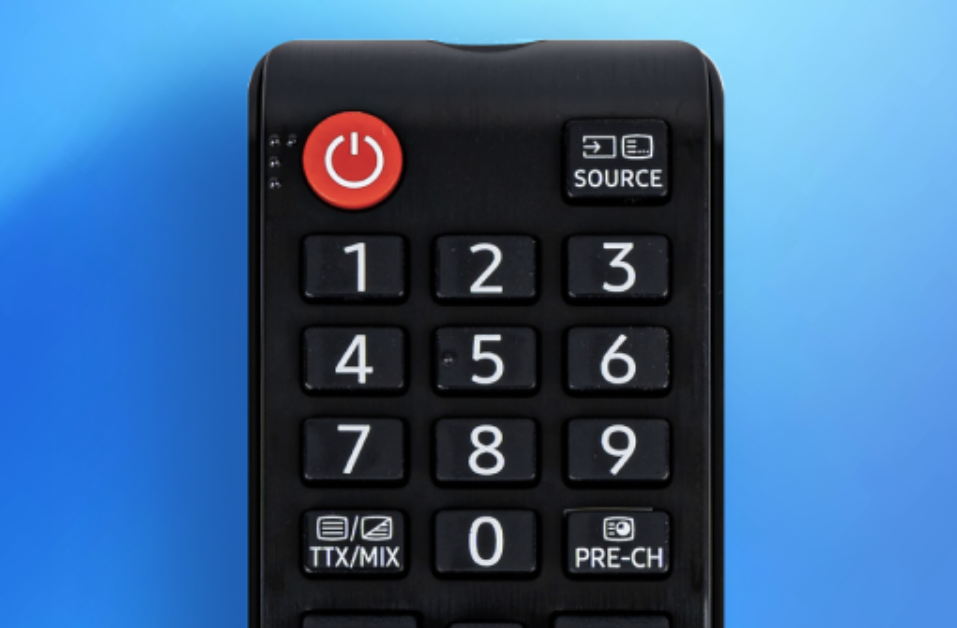An update to TV specifications used by UK digital TV platforms will allow TV and set-top-box manufacturers to remove a remote control button that was once pressed by millions of viewers each week.
- Largely obsolete button can be dropped
- New specifications will also squash bug that threats to break devices in 2038.
The Digital Television Group (DTG), which oversees the UK’s digital TV standards, has confirmed that the latest edition of its D-Book specification—version 12.11—no longer requires the text button on TVs and set-top-boxes supporting Hybrid Broadcast Broadband TV (HbbTV). It follows the UK’s broadcast industry’s retreat from providing text services, which started back in the 2000s leaving the BBC as a single supplier.
The text button was once the gateway to news, information and even holidays from a range of teletext providers. During its peak in the 1980s and 1990s, the BBC’s Ceefax alone attracted up to 20 million weekly users, making the Text button an important fixture on nearly every TV remote.
Although the BBC attempted to discontinue the UK’s last remaining text service in 2020, public opposition—particularly from older viewers—led to its partial retention. However, newer TVs no longer support the technical standard required to access it.
Instead, broadcasters and manufacturers are expected to support HbbTV, a more modern standard that enables interactive services via internet-connected devices.
Manufacturers are unlikely to complain about the change – they’ve benefitted from lucrative deals to include shortcut buttons to streaming services. The removal of the text button creates more valuable space on the remote. While voice control gains popularity, it can still be quicker to press a button for some functions.
Future-Proofing for 2038
D-Book 12.11 also addresses a critical technical issue that could affect digital receivers in 2038. Without intervention, some devices may incorrectly reset to 1970 due to a date-handling bug in DVB-SI transport streams. The 2038 bug, which would kick-in on 19 March 2038, has been well-known in the computing industry for some time. The updated specification ensures that new devices will continue to function correctly well beyond that date.
The D-Book remains central to ensuring interoperability and compliance across UK platforms including Freeview Play, Freely, Freesat, EE TV, Sky Glass, TalkTalk TV, Now, Netgem TV, and YouView. It also evolves alongside cybersecurity and network standards, supported by DTG Testing and SafeShark.
DTG CEO Richard Lindsay-Davies said:
“Interoperability has never been more vital. In a rapidly fragmenting market, the D-Book remains the cornerstone that keeps the UK’s television ecosystem connected, compliant, and competitive—for everyone, everywhere.”
Why the Text Button May Linger
Despite the UK specification change, the text button may persist on some devices. Many TV manufacturers produce models for multiple markets, where the DTG has no remit. In some countries teletext remains popular. 10% of Austrian viewers still access the country’s main teletext service, while in neighbouring Germany, nearly half of all viewers still use Teletext, supported both by legacy standards and newer HbbTV-based services. 3.2 million viewers still use Teletext in the Netherlands.
While the text button may soon disappear from devices specifically made for the UK market, it may be some time before the same is true internationally.
By: Marc Thornham

